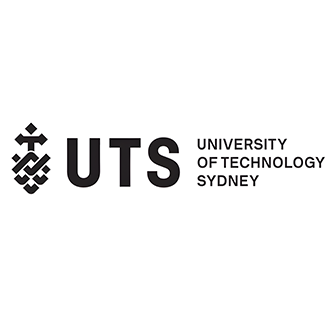100,000+ DREAMS TRANSFORMED
Success isn’t just about visas—it’s about changing lives. From study abroad aspirations to migration milestones, Twins Abroad don’t just open doors—we pave runways for dreams to fly. Every success story is a testament to our commitment—your journey, our passion!
Find Your Perfect Immigration Pathway
- Canada
- Australia
- United Kingdom
- United States
- Germany
- Denmark

Express Entry – Immigrate as a competent worker and secure a permanent position in Canada’s flourishing economy.
Provincial Nominee Program (PNP) – Settle in a province that recognises your abilities and provides a path to permanent residency.
Atlantic Immigration Program (AIP) – A quick and easy way for skilled workers and graduates in Canada’s Atlantic provinces to become permanent residents.
Canada Senior Care Program – Obtain a fulfilling job in senior care while achieving eligibility for permanent residency.

Subclass 189 – A points-based skilled migration visa for people who want to live and work in Australia permanently.
Subclass 190 – State-nominated visa for skilled individuals with knowledge needed in certain Australian states.
Subclass 491 – A regional visa that lets skilled workers and their families move to Australia permanently.

Skilled Worker Visa – Get a job in a high-demand field and make the UK your permanent home with an employer-sponsored visa.
Innovator & Start-up Visas – Launch or expand your business in the UK and gain long-term residency opportunities.

H1B & Work Visas – Get a work visa in the U.S. designed for experts in specific industries.
Green Card Process –Secure your permanent residency and open the door to endless career and lifestyle possibilities in the U.S.

Opportunity Card – A new immigration route that allows talented workers to pursue job prospects in Germany.
EU Blue Card –An in-demand visa for talented individuals aiming to work and settle themselves in Germany effortlessly.

Work & Residence Program – A dedicated immigration pathway for qualified nurses seeking employment and permanent residency in Denmark.
Immigration
Immigration
Contact Us Now
+91 8593000922
Talk to a Consultant
Explore Your Dream Study Destination

Canada
Excellent post-study

Australia
Relaxed yet lively

United Kingdom
Rich academic legacy

United States
Innovation hub with

Germany
World-class educational
Study Abroad
Study Abroad
Studying abroad is more than just getting a degree; it’s a process of transformation. It’s about crossing borders, experiencing different cultures, and developing insights that will turn you into a global citizen. Every experience, from working with varied peers to learning a new language, contributes to your personal and professional development. No matter what you study, studying abroad gives you the confidence, flexibility, and edge you need to do well in a world with no boundaries. Your goals are global, so why shouldn’t your studies be too?
Recruitment
Recruitment
Universities We Collaborate With










Success Stories
I'm thrilled to share my wonderful experience with Twins Abroad Immigration. The process of obtaining a work visa in Australia was remarkably seamless and successful, all thanks to their outstanding services. From the moment I interacted, their team demonstrated exceptional professionalism and knowledge. They made all efforts to understand my circumstances and customised their recommendations to meet my needs. I am so grateful for their commitment and the excellent immigration service they provide. 😍🙌
Work Visa AustraliaI wasted a lot of money on other immigration agencies and got nothing but false promises. Then I contacted Twins Abroad with zero hope but gradually felt like I was in good hands. They were very honest, best and supportive, and really understood my needs and requirements. Thanks to them from the bottom of my heart, I’m now working in Canada as a nurse! So grateful for the whole team, highly recommend this immigration consultants in Kerala.
Work Visa CanadaIf you’re searching for the best recruitment agency in Kerala for nursing jobs, look no further than Twins Abroad. Their team handled my visa application with such precision and care that the entire process was smooth and stress free from start to finish. They provided regular updates, gave me valuable advice at each step. Thanks to Twins Abroad, I now have my Australian PR, and I couldn’t be happier.
PR AustraliaTwins Abroad played an important role in our PR visa journey. The assistance and support offered by the team from our initial visit have been exceptional. We are extremely pleased with the service received. They maintained consistent communication, ensuring prompt and efficient completion of the process. 🙏We express our sincere gratitude to every member of their team for their thorough follow ups and meticulous attention to detail, which ensured the proper execution of everything. We are extremely pleased with the assistance provided in our immigration process. Thank you Twins Abroad, truly the best immigration services in Kerala❤️❤️
PR CanadaHighly recommend Twins Abroad for anyone looking for the best immigration consultancy in Kerala. From the moment I approached them with my Canadian PR application, they provided clear guidance and support. The team's professionalism and attention to detail were impressive. They were always available to answer my queries and helped me through every step of the process. So grateful for their dedication and genuinely recommend them to anyone looking to migrate to Canada. 😊💯
PR CanadaTwins Abroad provided me with the best Canada Express Entry service in Kerala. Their expertise and clarity throughout the process were truly top notch. I was constantly updated on my application status, which made the experience stress-free. Highly recommend this immigration consultancy for a smooth migration process. 😍
Express Entry CanadaI had approached several immigration agencies for my Canada PR application, but none of them were customer-friendly. Then I found Twins Abroad, and they made everything possible! Their team was incredibly helpful and professional throughout the process. They truly offer the best immigration services in Kerala. I couldn't be more satisfied with their service 😇❤️
PR CanadaFast service for Canada immigration. I got my visa without any delays. The expert team here at the best consultancy in town was awesome, they were always there to help me throughout. 🙌
AIP CanadaI recently collaborated with Twins Abroad regarding my international education plans. I'm about to go to Germany for my higher education in public universities. They offer a wide range of services aimed at supporting students throughout their study abroad experience. The team was always quick to respond and maintained a high level of professionalism. Overall, my experience with Twins Abroad was quite incredible. Thank you Twins Abroad for being the best immigration consultancy in Kerala. 🙌 I highly recommend Twins Abroad for students looking for trustworthy and expert assistance in achieving their international education aspirations. 😇🙏
Student Visa GermanyOther Services




Your Future Is Our Priority
Your Future Is Our Priority
Your future is among the most significant choices you’ll ever face, and the right support can truly change everything. Twins Abroad is your trusted partner for education, job, or life abroad. With skilled professionals, a track record of success, and a dedication to tailored solutions, we guide you through the intricacies—transforming dreams into reality.

Dream Beyond Borders
Doubt constrains potential, yet proper direction transforms ambiguity into possibility. With professional guidance and a defined roadmap, every goal can be achieved. Twins Abroad is dedicated to turning aspirations into reality, making sure that no dream is out of reach.

Certifications & Affiliations






Your Trusted Partner in Study Abroad, Immigration, and Global Recruitment
Kerala, recognised for its outstanding educational standards and career ambitions, has seen a boom in people pursuing international opportunities, including students, professionals, and skilled workers. With the rise in global movement, the demand for professional advice in education overseas, immigration processes, and recruiting talent is at an all-time high. At Twins Abroad, we connect aspirations with actual results by offering specialised assistance for students, skilled professionals, and job seekers looking to create a future overseas.
Finding your way through the complicated procedures of studying abroad, relocating, or getting international employment can feel daunting. Given the constantly shifting visa regulations, competitive employment landscapes, and dynamic educational environments, expert advice is essential for facilitating a smooth transition. Twins Abroad streamlines this journey, providing comprehensive support customised to your individual goals.
FAQs
Yes, those holding a Tier 4 Student Visa are permitted to work a maximum of 20 hours each week while classes are in session and can take on full-time employment during holiday breaks.
STEM graduates may extend their post-study work (OPT) duration to a maximum of 36 months, affording them additional time to obtain H1B sponsorship.
This visa lets dependents join the applicant in the UK, offers a five-year work permit, and provides a route to Indefinite Leave to Remain (ILR).
To be eligible for the German Opportunity Card, applicants must meet specific conditions under Germany’s points system. These include age, educational background, employment experience, language competency, and financial stability.
In contrast to its previous version, the Innovator Founder Visa does not mandate a minimum investment; rather, applicants must demonstrate a practical, flexible, and innovative business concept.










Recently, I had the opportunity to collaborate with Twins Abroad on my German study process. The team has been consistently professional, responsive, and committed to addressing my needs from the very first consultation through to the current submission stage. The communication flowed effortlessly, keeping me consistently informed. The team's expertise and knowledge were evident in the high quality of work they produced. They surpassed our expectations in every aspect. I strongly recommend Twins Abroad for anyone in search of the best immigration services in Kerala. 👌🙏
Student Visa Germany